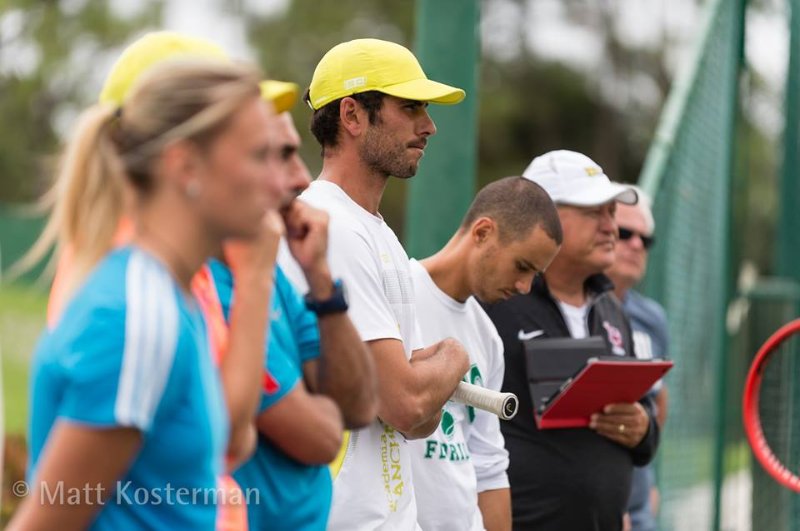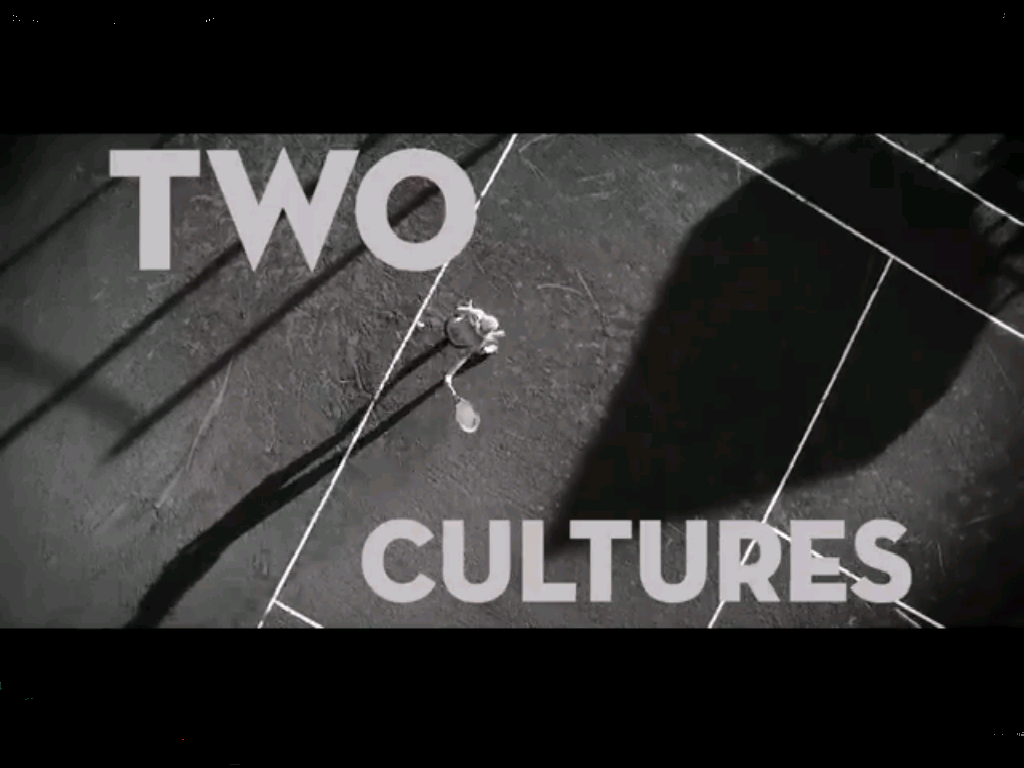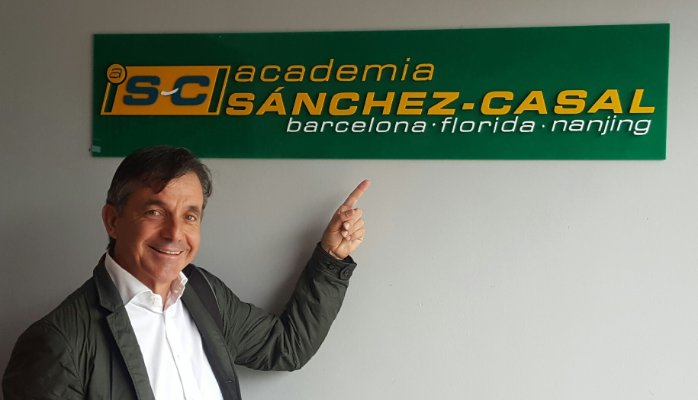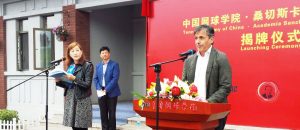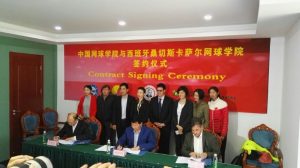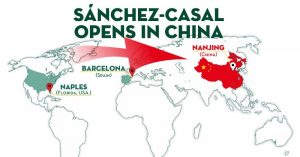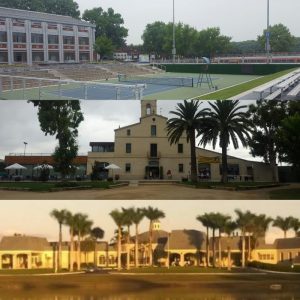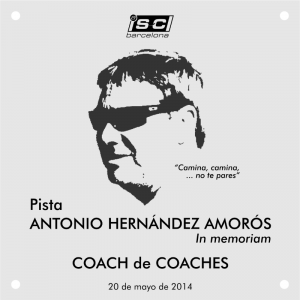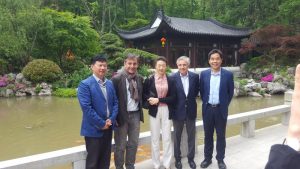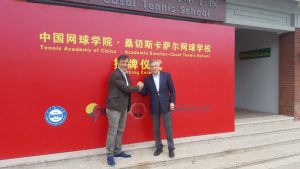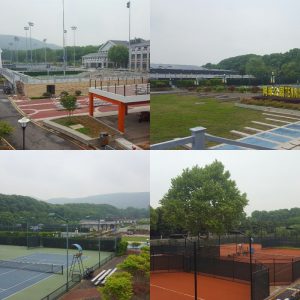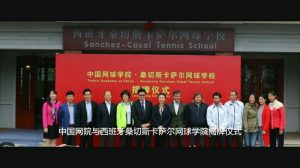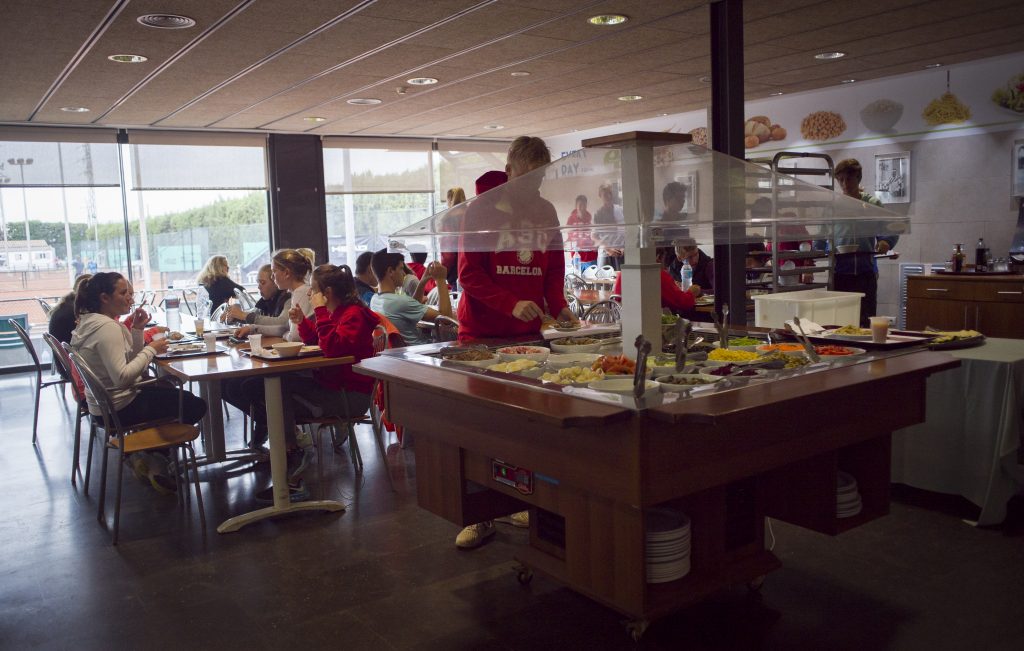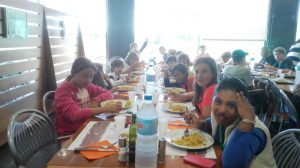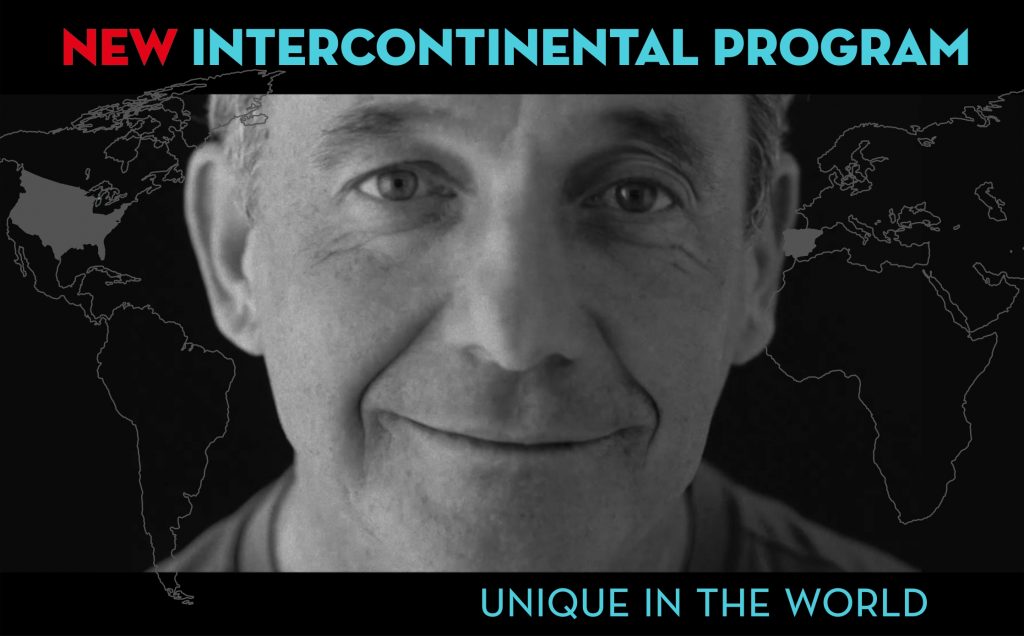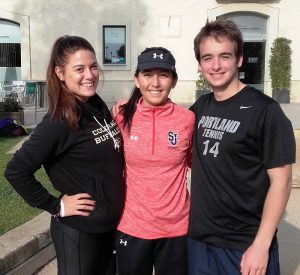By Guillermo Celard Pérez, Professional Tennis Coach at Sánchez-Casal Academy, Florida.
I am not the standard coach who arrives and leaves work at the appointed time after having ticked off “x” number of tennis classes. I am a 31 year old man, who, when I was 15, the same age as the majority of your children, my parents decided to send me to a tennis academy.
Initially, probably the same as many of your children, I didn’t understand why my family had made this decision. I was forced to play tennis and study in Barcelona, where I didn’t know anybody, far away from my family and without the technology that surrounds us nowadays allowing us to keep in touch. Like everyone, I had low and difficult moments, but it was thanks to the determination of the coaches, the bonds that I created with them as well as the relationships fostered with my classmates, that I thoroughly appreciated the opportunity to have that experience. The coaches helped us to understand, and gave meaning to, the path that we had embarked upon.
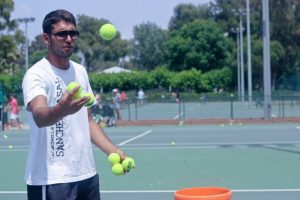
Today, I give thanks to those amazing years, and the opportunity that my parents gave me to meet people from different cultures, to connect with and accept every one of them, and to make new friends, some for life. I am grateful for the knowledge that my coaches taught me, all the effort, the long hours on and off the court, helping me to understand not just tennis, but something else, which for me has been the most important lesson: “the value of life”.
Having lived through this experience attaches special value to my work; I already know the importance of having a person you can trust “who at times, becomes a friend, brother, or father…” when you need them.
Ultimately, I am an educator, and as the best teacher told me back in the day: “Guillermo, offer your players all the good things your coaches gave you, and everything that they didn’t give you but you would have liked”.
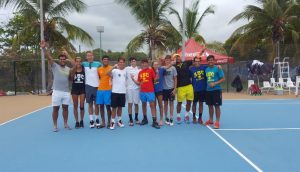
Three years ago I had the opportunity of joining a team of trainers at the Sánchez-Casal Academy (ASC) in Barcelona, after which I was offered a place at the academy in Naples, Florida. At ASC I have found a place where I can share my lessons learned and work towards the values I believe in, those of this institution: create opportunities in tennis, in education and in life. It’s for this reason that I am able to dedicate myself to my work with such passion and joy.
I start the day quite early. First I walk to the club where I spend the most of my working day, I take a shower to get me going and have breakfast with all the students of the academy. Immediately afterwards the team gets underway with a short pre-training meeting, which helps to make sure that everything is well structured and organised.
From there, we go directly to the courts where 3 hours of intense training awaits us. Every day is a new challenge, a new page of the book that our students have to write in with beautiful handwriting. The whole team goes out of their way for the players, providing technical/tactical/fitness/mental advice to something more simple or complicated, like education, respect, passion and the determination to pursue their dreams, whether it be with care or reprimands, whatever is needed in the moment.
Sometimes we have to say things that some players don’t want to hear and won’t accept! When they are not doing something well enough and you explain it to them in a positive way so they understand what they have to do in order to improve, some of them don’t know how to accept the advice and react badly. Others, on the other hand, accept it very well and react very positively. What I try to make them see is that really, what I do is educate them. One has to be patient with teenagers, have the practical skills to know how to handle them, but also have the passion in your heart to do so.
When we finish the tennis session, the students go to shower and straight afterwards to school. The coaches head to the office for around an hour and a half to do the work required behind the scenes: working on the computer, reports, registering for and withdrawing from competitions, preparing budgets and travel logistics to and from tournaments.
When the students leave school we meet together again to eat. There is always someone in the team supervising meals. Nutrition is very important for our athletes as is what and how they eat; we ensure they follow a nutritious diet so that they are able to complete their challenging routine with as much energy as possible.
Once they have finish eating, it’s time for students to return to school. We go back to the office, to continue with our tasks and prepare the afternoon sessions with the little ones of the academy.
Mid-afternoon we return to the court for a session of 1-2 hours depending on the day, with the afterschool students. Children who live in the area come after school for their training, and follow the same system as the players in the academy; they also join with a middle school group who split their training times between mornings and afternoons. The oldest go to the gym where our physical training team teaches the players to understand how their bodies work, improve their flexibility, condition and skills.
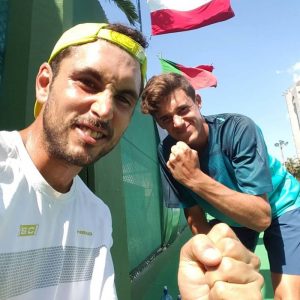
As soon as they finish in the gym, everyone goes to shower and next we head to dinner. There’s no time to lose in the academy, the timetable is tight and demanding – just like the sport, just like life.
Next everybody begins their studies, for around an hour the children have study hall. Just like during mealtimes, a member of the technical team, alongside the head of the school, stays with the students while they do their homework.
Once study time has finished, it’s time to go home. It’s already 8.30pm and the students’ communal living continues at their accommodation, some carry on with their homework, others talk to their families and friends on social networks. Us, the ‘adults’, take advantage of this time to speak to them about personal things; this is the right time to get them to open up and do our job of tutoring them. And of course, whenever tennis matches are on, we get everyone together to watch the game.
After all of this, it’s time to relax, turn the lights off and everyone goes to sleep.
This is only a taste of what a day is like for me: hard but gratifying. I can see how the efforts of so many years, time on the court and in the office since I started in my home town has materialised into finding my place in the Sánchez-Casal Academy, where I can also continue my own education, attending courses and congresses like the ICI (International Coaches Institute) run by Emilio Sánchez and Luis Mediero. All that effort means results!
Guillermo Celard Pérez
Professional Tennis Coach at Sánchez-Casal Academy Florida
